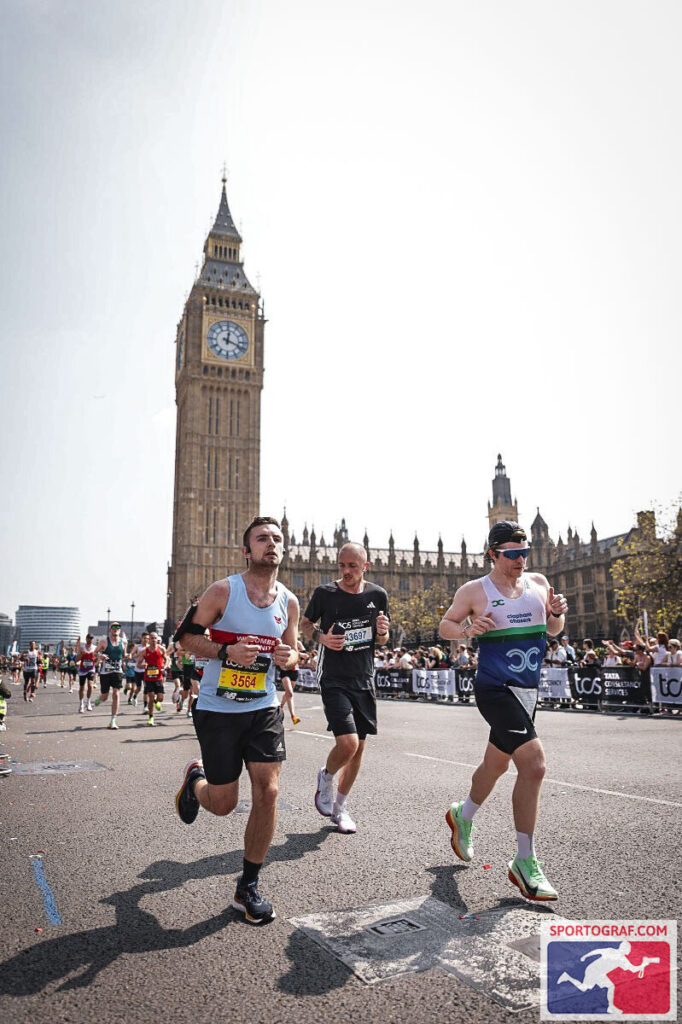
There’s a quiet clarity that comes with lining up at the start of a marathon.
You’re not there for a quick result. You’re there because you’ve followed a plan, often through challenging conditions, and have committed to seeing it through. That kind of consistency and long-term thinking feels increasingly rare – and increasingly valuable – in professional life.
I’ve always been drawn to sport, and more recently, to running. I’ve been running for three and a half years, and the longer I spend immersed in it, the more I’ve come to realise that the lessons extend far beyond just keeping fit. Marathon training is as much about structure, discipline, and resilience as it is about endurance, and these qualities show up time and again in the workplace.
Running a marathon is often described as a physical test, but by mile 20, it’s your mindset that does the heavy lifting. Races rarely go to plan. When I ran the London Marathon last weekend, the conditions were far warmer than expected. After months of training in cold evenings, I realised early on that the personal best I had worked towards wasn’t realistic that day. So I adjusted. I reduced my pace, focused on hydration, and made the decision to finish well rather than chase an arbitrary time. That ability to reset in the moment, to manage expectations without losing focus, is just as useful in a professional setting, especially when things don’t go the way you’d planned.
Training five days a week while building your career has forced a certain discipline. You don’t wait for spare time, you make time. It means reorganising your calendar, choosing long runs over late nights, and protecting your non-negotiables. Over time, this approach builds habits that naturally carry over into your working life. You get better at prioritising, more confident in planning, and more comfortable saying no when you need to.
Just as importantly, marathon training teaches you how to approach big goals in phases. No one rolls out of bed and runs 26.2 miles. On race day, I break the course down: the first 5K, then 10K, the halfway mark, mile 20, and so on. You move from checkpoint to checkpoint, each one manageable on its own. The same logic applies at work. Whether it’s leading a campaign, delivering a strategy, or managing growth, progress is rarely about dramatic leaps. It’s the sum of small, sustained efforts.
Then there’s the inevitable dip. Runners call it “hitting the wall,” a period of physical depletion where carrying on feels near impossible. And yet, most do carry on. The wall isn’t a signal to stop, it’s a cue to refocus. At work, similar moments come when a project loses momentum, a pitch falls flat, or energy simply runs low. The response, even if you slow down, is what makes the difference between stalling and finishing. Consistency is key. The cold, grey mornings when no one’s watching are the ones that matter. Showing up to train – especially when there are far easier options – builds a quiet kind of resilience.
Running is often thought of as a solo sport, but training with others has made a big difference for me. Whether it’s track sessions where we take turns leading the pack, or long weekend runs when everyone’s running on tired legs, teamwork makes it easier to keep going. It’s not always obvious, but that support really matters. The same is true in professional teams. Collaboration doesn’t have to be loud to be effective. More often, it’s the small things that make the biggest impact: sharing the load, keeping a steady rhythm, and knowing when to step up or step back.
Of course, not every run feels good. Some days are a grind. But you stick with it, because you know that progress doesn’t always show up straight away. Work’s no different. Some days fly-by, others are more of a struggle. What matters is showing up and trusting that the effort adds up over time. People often say, “it’s a marathon, not a sprint,” and while it might be a bit of a cliché, there’s truth in it. As careers get longer and work moves faster, it becomes more important to know when to push and when to ease off. For me, marathon training has gradually shaped how I think about growing professionally, particularly this early on in my career. Whether you’re preparing for a race or building something at work, the mindset is the same: plan carefully, stay consistent, adapt when things change, and remember that real progress usually comes from steady effort, not overnight success.
Crossing the finish line and getting a medal is a great feeling, but it’s not just about that moment. What matters more is everything that got you there, and the person you’ve become along the way.
Ben Pease is an Intern at Blakeney.